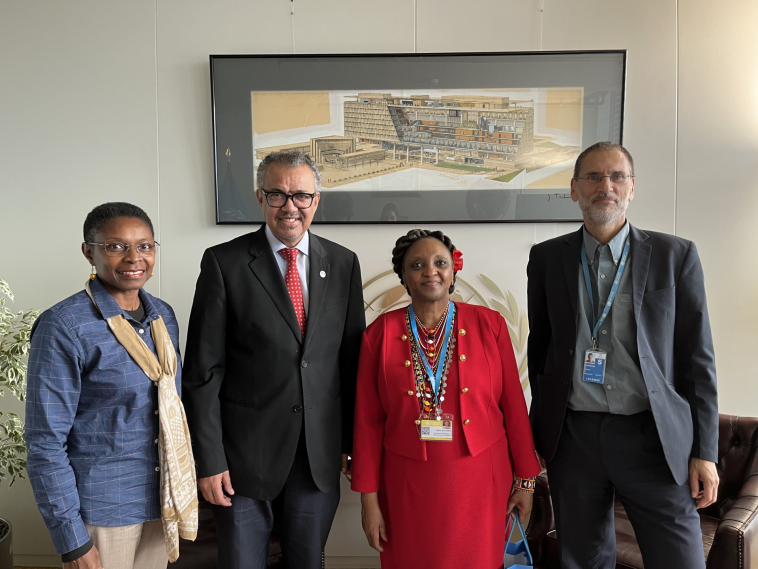Building partnerships in the global fight against postpartum haemorrhage

The World Health Organization (WHO) has joined forces with FIGO and the International Conference of Midwives to develop joint consolidated guidelines on postpartum haemorrhage (PPH). This collaborative effort marks an important milestone on the WHO Postpartum Haemorrhage Roadmap, as we work together to harmonise guidance on PPH prevention, detection and management.
FIGO President Prof Anne-Beatrice Kihara recently met with WHO Director-General Tedros Adhanom Ghebreyesus, Director of the Department of Sexual and Reproductive Health Prof Pascale Allotey and Director for Maternal, Newborn, Child & Adolescent Health Anshu Banerjee (pictured above) to cement our strong partnership to improve health outcomes for women, girls and newborns worldwide. The discussions covered various critical aspects including maternal mortality from PPH, the importance of investing in adolescents and youth, the role of technology, women in leadership and the need for a holistic approach to healthcare.
During her visit, Prof Kihara also participated in key conversations with ICM’s Chief Midwife Jacqueline Dunkley-Bent and colleagues (pictured below) to contribute to the development of common norms and standards on PPH, as we continue our crucial collaboration to end preventable PPH-related maternal deaths globally.

In my nation we had one word we used to say ‘harambe’ which means pulling together. We shouldn't walk alone. As society, we should care enough for any woman who is pregnant.
Prof Anne-Beatrice Kihara, FIGO President
The WHO Roadmap to Combat Postpartum Hemorrhage serves as a beacon of hope in the journey to reduce maternal mortality. With a commitment to ongoing collaboration, the roadmap aims to provide guidelines and strategies to protect mothers worldwide. Through combined expertise, determination, and advocacy, the global community can work together to make PPH a preventable and treatable condition, ensuring a safer and healthier future for mothers around the world.